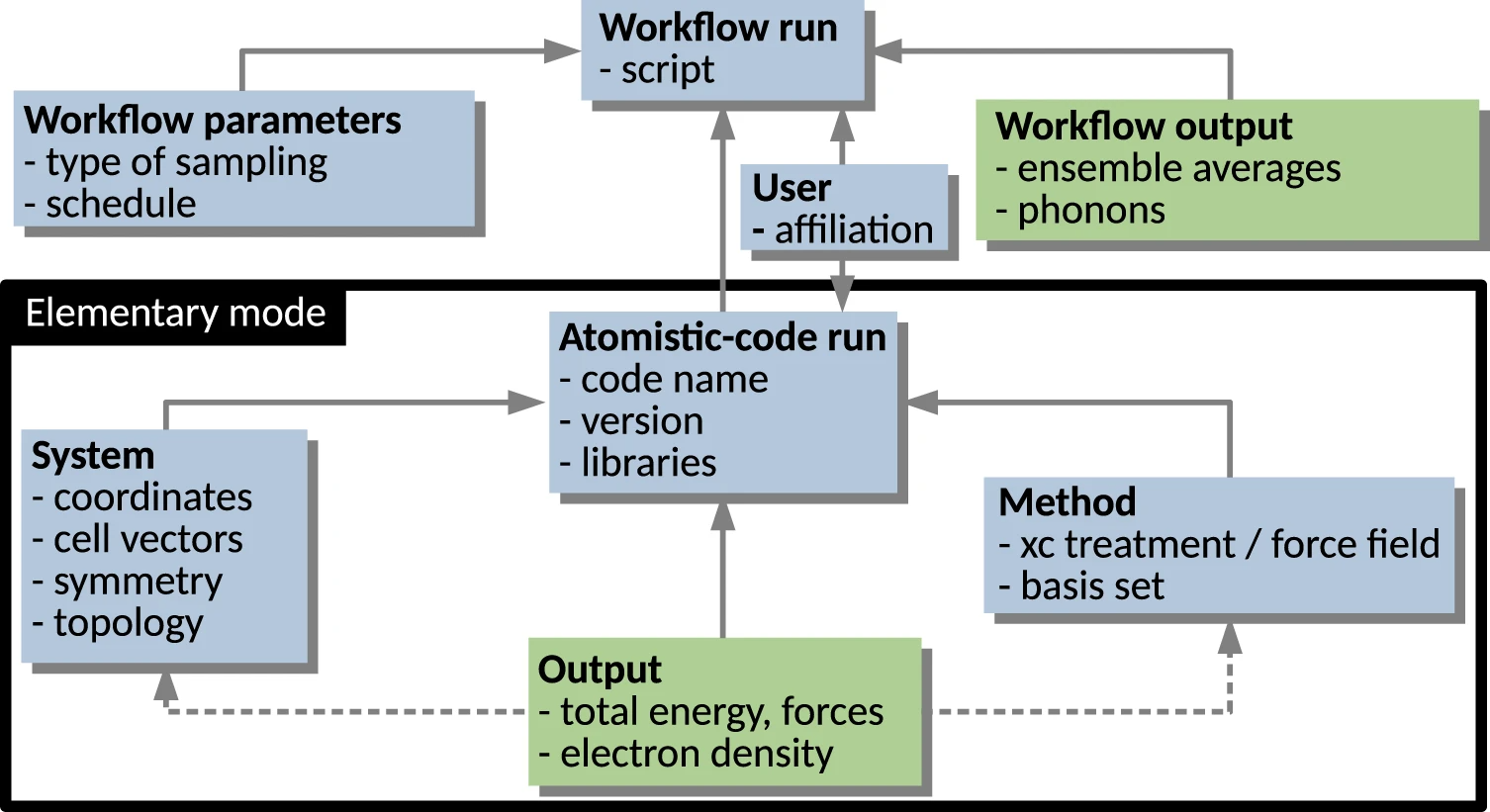Difference between revisions of "Template:Article of the week"
Shawndouglas (talk | contribs) (Updated article of the week text) |
Shawndouglas (talk | contribs) (Updated article of the week text) |
||
| Line 1: | Line 1: | ||
<div style="float: left; margin: 0.5em 0.9em 0.4em 0em;">[[File: | <div style="float: left; margin: 0.5em 0.9em 0.4em 0em;">[[File:Fig1 Ghiringhelli SciData23 10.png|240px]]</div> | ||
'''"[[Journal: | '''"[[Journal:Shared metadata for data-centric materials science|Shared metadata for data-centric materials science]]"''' | ||
The expansive production of data in [[materials science]], as well as their widespread [[Data sharing|sharing]] and repurposing, requires educated support and stewardship. In order to ensure that this need helps rather than hinders scientific work, the implementation of the [[Journal:The FAIR Guiding Principles for scientific data management and stewardship|FAIR data principles]] (that ask for data and information to be findable, accessible, interoperable, and reusable) must not be too narrow. At the same time, the wider materials science community ought to agree on the strategies to tackle the challenges that are specific to its data, both from computations and experiments. In this paper, we present the result of the discussions held at the workshop on “Shared Metadata and Data Formats for Big-Data Driven Materials Science.” ... ('''[[Journal:Shared metadata for data-centric materials science|Full article...]]''')<br /> | |||
''Recently featured'': | ''Recently featured'': | ||
{{flowlist | | {{flowlist | | ||
* [[Journal:A metabolomics and big data approach to cannabis authenticity (authentomics)|A metabolomics and big data approach to cannabis authenticity (authentomics)]] | |||
* [[Journal:Integration of X-ray absorption fine structure databases for data-driven materials science|Integration of X-ray absorption fine structure databases for data-driven materials science]] | * [[Journal:Integration of X-ray absorption fine structure databases for data-driven materials science|Integration of X-ray absorption fine structure databases for data-driven materials science]] | ||
* [[Journal:Management and disclosure of quality issues in forensic science: A survey of current practice in Australia and New Zealand|Management and disclosure of quality issues in forensic science: A survey of current practice in Australia and New Zealand]] | * [[Journal:Management and disclosure of quality issues in forensic science: A survey of current practice in Australia and New Zealand|Management and disclosure of quality issues in forensic science: A survey of current practice in Australia and New Zealand]] | ||
}} | }} | ||
Revision as of 17:03, 22 January 2024
"Shared metadata for data-centric materials science"
The expansive production of data in materials science, as well as their widespread sharing and repurposing, requires educated support and stewardship. In order to ensure that this need helps rather than hinders scientific work, the implementation of the FAIR data principles (that ask for data and information to be findable, accessible, interoperable, and reusable) must not be too narrow. At the same time, the wider materials science community ought to agree on the strategies to tackle the challenges that are specific to its data, both from computations and experiments. In this paper, we present the result of the discussions held at the workshop on “Shared Metadata and Data Formats for Big-Data Driven Materials Science.” ... (Full article...)
Recently featured:










